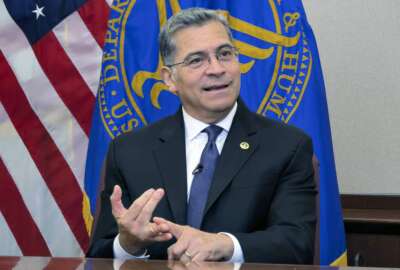Congress coming after federal slackers
Feds who goof off on the job, or who spend all day surfing the net, watching the clock or on personal business are in for trouble. Congress is coming. So why are...
(Editor’s Note: Mike Causey is on vacation. This column originally ran June 6, 2011. It has been edited for dated references only. However, our Nearly Useless Factoid is new!)
In a modern version of the ancient yoga pose, Etu Topus Bottomus, which roughly translates to “head-up-one’s-own-anatomy,” belt-tightening members of Congress are finding that getting a handle on the giant federal establishment is easier said than done. And sometimes when done, not all that rewarding. Which would explain why…
- Politicians who want to increase tax revenue while refusing to consider tax increases are talking about cutting the staff and budget of the Internal Revenue Service, which is Uncle Sam’s top money-maker.
- Politicians who have increased their own personal security on Capitol Hill and for senior administration officials are talking about cutting back the number of airport screeners and support personnel as the peak summer travel season begins.
- In what was intended as a major body blow to clock-watching, goof off bureaucrats, the House passed in May the Defense Authorization Act with surprise language that would deny annual pay raises to poor performing feds. There is a similar proposal to withhold the within-grade longevity step increases (worth three percent) to certified losers. The thinking is that it would save a bajillion dollars a year. So why are the majority of feds not quaking in their boots?
A couple of problems with the plan!
First, the White House and Congress have already frozen white collar federal pay for two years and are talking about extending the freeze another year (at minimum) or for another three years. Denying people something they don’t get anyhow seems, somehow, a less than effective tool. Are they saying that “if you ever become eligible for another pay raise you might not get it?” Harsh!
Another is making it work and getting some bang for the denied bucks.
Most people, in or out of government, would agree that there is nothing wrong with not giving raises to people who can’t or won’t do their jobs. Surveys of large numbers of federal workers (who rank 14 percent of their coworkers as non-starters) indicate most employees would love to see slackers and losers actually lose.
One problem with both concepts, assuming employees could be convinced the procedures were fair, is how few people it would hit, and how little it would save.
Office of Personnel Management data obtained by the Federal Times showed that in the most recent period measured (2009) only 737 feds out of a pool of 1.2 million non-postal employees were denied within-grade (WIG) raises because of poor performance. That, the paper said, works out to one of every 1,689 employees. A denial rate of 0.06 percent. Maybe the same odds as being struck by lightning on a Florida golf course.
OPM Director John Berry, a veteran of Capitol Hill and the executive branch, has repeatedly said federal managers should step up to the plate and do a better job of taking action against poor performers. Managers respond that when they go after a poor performer they often fail to get support from topside, or find themselves in trouble.
Under the late National Security Personnel System, which at one time covered about 220,000 defense civilians, pay-for-performance was the mantra. Supervisors were encouraged to encourage marginal employees to get with the program or remain in their current tax bracket forever. Even with this emphasis on performance, the rejection rate – the percentage of employees who didn’t get raises – was only 0.2 percent.
To reach me: mcausey@federalnewsradio.com
Nearly Useless Factoid
by Julia Ziegler
According to WeirdFacts.com, Parker Brothers prints roughly $50 billion worth of Monopoly money each year.
MORE FROM FEDERAL NEWS RADIO:
Feds’ wellbeing at work lower than private sector
A Gallup poll found federal workers are less likely to have positive relationships with their supervisors, indicating government jobs have a “more traditional, subordinating work environment.”
Lockheed Martin doubles job cuts
Defense contractor Lockheed Martin Corp. plans to cut 1,500 jobs in its airplane-making business, saying it needs to cut costs due to the prospect of limited defense spending.
OMB pushes CFOs to lead cost-cutting effort
Agency chief financial officers must decide on three broad initiatives that will save significant amounts of money by July 31.
Agencies share strategies for upgrading facilities
The future of federal office construction projects could be defined, in part, by the way the General Services Administration modernizes a building that opened for business 94 years ago.
Copyright © 2025 Federal News Network. All rights reserved. This website is not intended for users located within the European Economic Area.





